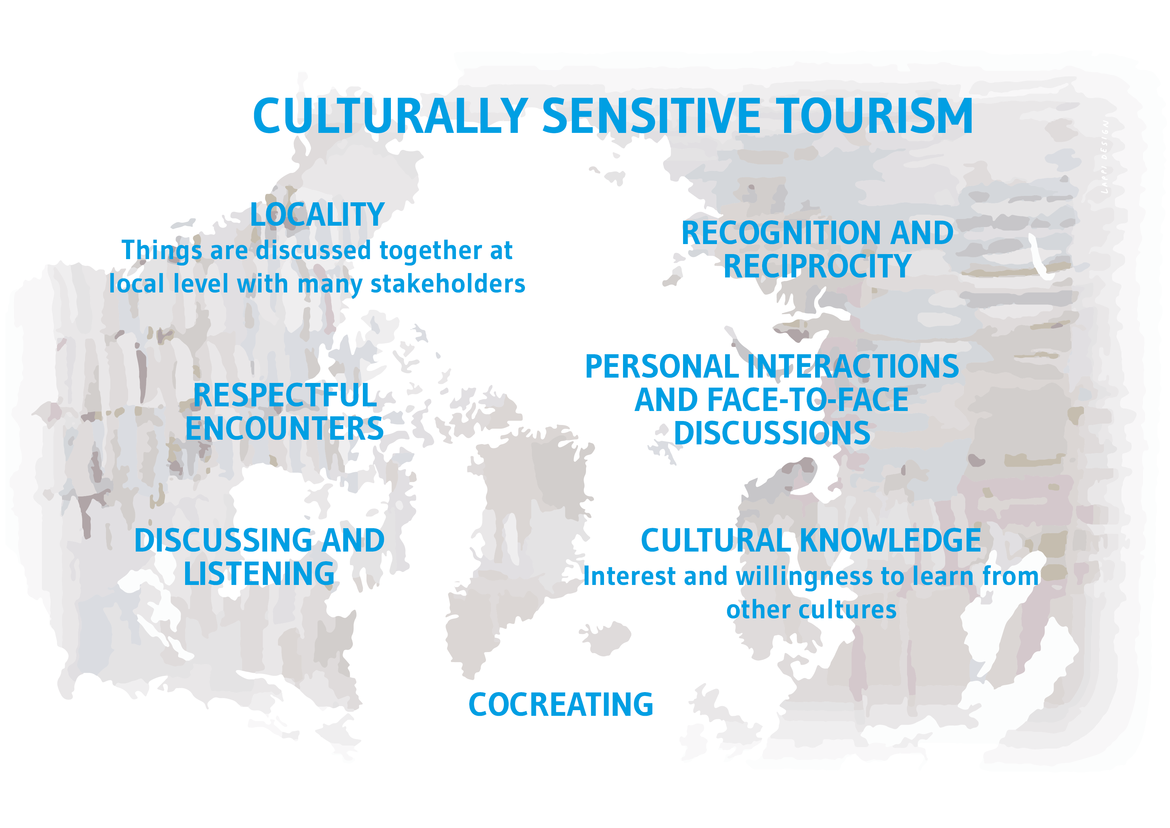Cultural sensitivity
Cultural sensitivity is highly relevant in the Arctic tourism context, where local and Indigenous livelihoods and environments are tethered to dynamics of recent tourism growth and decline, climate change, and colonial power relations. At the same time, the notion of cultural sensitivity is inadequately conceptualized and used in tourism contexts. ARCTISEN knowledge collective has developed a framework of cultural sensitivity for developing tourism services and products, and approaching tourism encounters. This framework enhances stakeholders’ self-determination, intra- and intercultural understanding, respect, empowerment and inclusion together with economic development solutions.
What is cultural sensitivity?
"What is cultural sensitivity?" has been discussed during the project lifetime in various events, with stakeholders, during benchmark etc to form a mutual understanding about the concept. The project has created an infographic about cultural sensitivity (see below). Cultural sensitivity is discussed from various point of views also in the ARCTISEN online courses.
Article Cultural Sensitivity: Engaging Difference in Tourism (2021, Annals of Tourism Research) by Arvid Viken, Emily Höckert and Bryan Grimwood, explores and advances understanding of cultural sensitivity in relation to Arctic tourism. Framing cultural sensitivity as a subjective orientation towards otherness, the article illuminates differences between ethnocentric and ethnorelative orientations and discusses the importance of relational tourism processes. By advancing the conceptualization of cultural sensitivity, the article offers a framework for developing tourism services and products, and approaching tourism encounters, in ways that can enhance recognition, respect and reciprocity towards otherness in Arctic tourism and beyond.
How the project will adapt cultural sensitivity to the activities
The project has adapted exisiting tools of tourism development, such as toolkits, benchmarking, workshops and co-creation, to developing culturally sensitive tourism business. The project has built on existing best practices and business solutions, such as, cultural certification system SápmiExperience in Sweden and a culturally sustainable marketing approach in Greenland. Instead of developing Sámi tourism in one country or between the Scandinavian countries and Russia, also other Indigenous peoples are included in the project in order to learn from their experiences and practises. At the same time, new cooperation and networks will be built together to support the development of culturally sensitive tourism business in all project countries.

